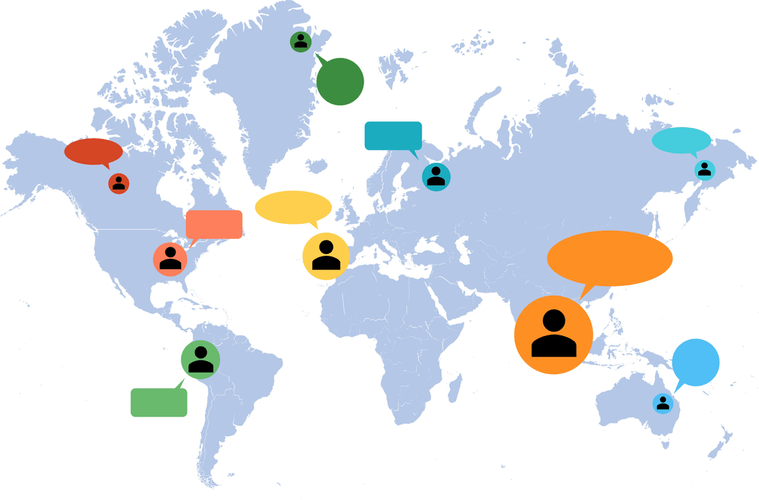You can only assign values of the correct type to a variable, unless you jump through some hoops. Another feature of this cross-platform support is that Python’s extensive standard library is written to work on all operating systems. Interpreting code is going to be slower than running native code directly on the hardware. Well, interpreting the code in a virtual machine means that only the virtual machine needs to be compiled for a specific operating system on a specific processor. All of the Python code it runs will run on any machine that has Python.
You can assign my_flexible_name to any type of object, and Python will just roll with it. Python has a few slight changes from C++ in the Boolean operators as well. For starters, if and while statements do not require the surrounding parentheses as they do in C++. Parentheses can aid in readability, however, so use your best judgment. There are people who are unhappy on both sides of the whitespace issue. Some Python developers love that you don’t have to type out braces and semicolons.
File System vs DBMS: Key Difference Between File System and DBMS
While this will take care of finding and freeing many of the objects that need to be freed, there are a few situations it will not catch. To do this everything in Python is a derived class from Python’s object. This allows the Python interpreter to implement reference counting as a means of keeping track of which objects are still in use and which can be freed. https://www.globalcloudteam.com/ Even better, if you have several objects of your new class in a list, then you can use sorted() on the list and they’ll be sorted using __lt__(). Base classes in Python do not have their constructor called automatically like they do in C++. There’s been a lot of interest and discussion in the Python community lately about static type checking in Python.

The Syntax for printing something as output is different for all the 3 languages. Python is ideal for prototyping as it provides more functionality with very few lines of code. There is no concept of automatic garbage collection in C. The use of for loop syntax is totally different in python.
C vs. Python: Which One Should You Learn?
I read the first two bullet point and then stopped reading it further. C# has a strong functional programming paradigms and concepts. Multiprocessing support in Python is built into the standard library.
While both C++ and Python have threading built into the language, the results can be markedly different, depending on the problem you’re solving. Frequently, threading is used to address performance problems. In C++, threading can provide a general speed-up for both computationally bound and I/O bound problems, as threads can take full advantage of the cores on a multiprocessor system. Now you’re ready to move on to differences in object-oriented programming. Frequently, you’ll find articles that extoll the virtues of one programming language over another.
How Do You Start a Career as a Python or C++ Programmer?
Python is a very simple, readable open source programming language which is extremely easy to learn. C is a highly portable and extensible programming language because it is not tied to any hardware or system. Any code written in C can be run on any machine which supports C, without modifying a single line of code.
- In terms of what kind of applications can be made with them, both languages have more similarities than differences.
- For example I am developing firmware for embedded device.
- C is difficult to learn because it combines the elements of high-level languages and low-level languages.
- If you want to develop a career in web programming or data analytics, then go for Python, alongside other languages like Java and C#.
- Whereas in C++ you use variables to reference values, in Python you use names.
- As computing systems become more advanced, raw speed becomes less important than development time, maintenance time, and general user experience.
After compilation, it links up object files and creates a single executable file. Python is also a leading language for data analysis and machine learning. While it is possible to use C++ for machine learning purposes as well, it is not a good option. In terms of simplicity, Python is much easier to use and has a great support system when it comes to AI and ML frameworks. In the following article, we will compare the 3 most used coding languages from a beginner’s perspective. Let’s discuss a brief history of all the 3 languages and then we will move on to the practical learning.
Python vs Cpython
If you’ve just got a good idea for a computer program, then Python is the better option. Finally, there are several methods for using your C++ skills to extend Python and add functionality, or to https://www.globalcloudteam.com/tech/c-plus-plus/ call your existing C++ libraries from within your Python code. Tools like CTypes, Cython, CFFI, Boost.Python and Swig can help you combine these languages and use each for what it’s best at.
![]()
Despite its age, it remains one of the most efficient object-oriented programming languages available. Commonly, C++ is used to develop operating systems, applications, and browsers. Perhaps the biggest difference between Python and Smalltalk is Python’s more „mainstream” syntax, which gives it a leg up on programmer training. Like Smalltalk, Python has dynamic typing and binding, and everything in Python is an object.
Which Should You Choose: Python or C?
In many programs the occasional garbage collection hit is unimportant. If you’re writing a script that only runs for 10 seconds, then you’re unlikely to notice the difference. Some situations, however, require consistent response times. Real-time systems are a great example, where responding to a piece of hardware in a fixed amount of time can be essential to the proper operation of your system. This has some advantages for both the developer and the compiler.

Any language you learn will make you a better programmer. Of course it is easier to learn a language if you have actual use for it. Python’s database access layer is primitive and underdeveloped in comparison to the popular technologies like JDBC and ODBC . It has extensive support for libraries, for instance, NumPy for numerical calculations, Pandas for data analytics, etc. Since C is only compiled and is not interpreted, errors or bugs cannot be detected after every line of code.
Pros and Cons of Python
However, it can also be a source of confusion and frustration, as compiler errors in templates can leave you baffled. Another large topic when you’re comparing Python vs C++ is the use of data types. C++ is a statically typed language, while Python is dynamically typed. Now that you’ve seen the differences in run time when you’re comparing Python vs C++, let’s dig into the specifics of the languages’ syntax. Before you start interviewing, you should also review interview questions. Many programming interviews today are just a sequence of “code interview” questions.
